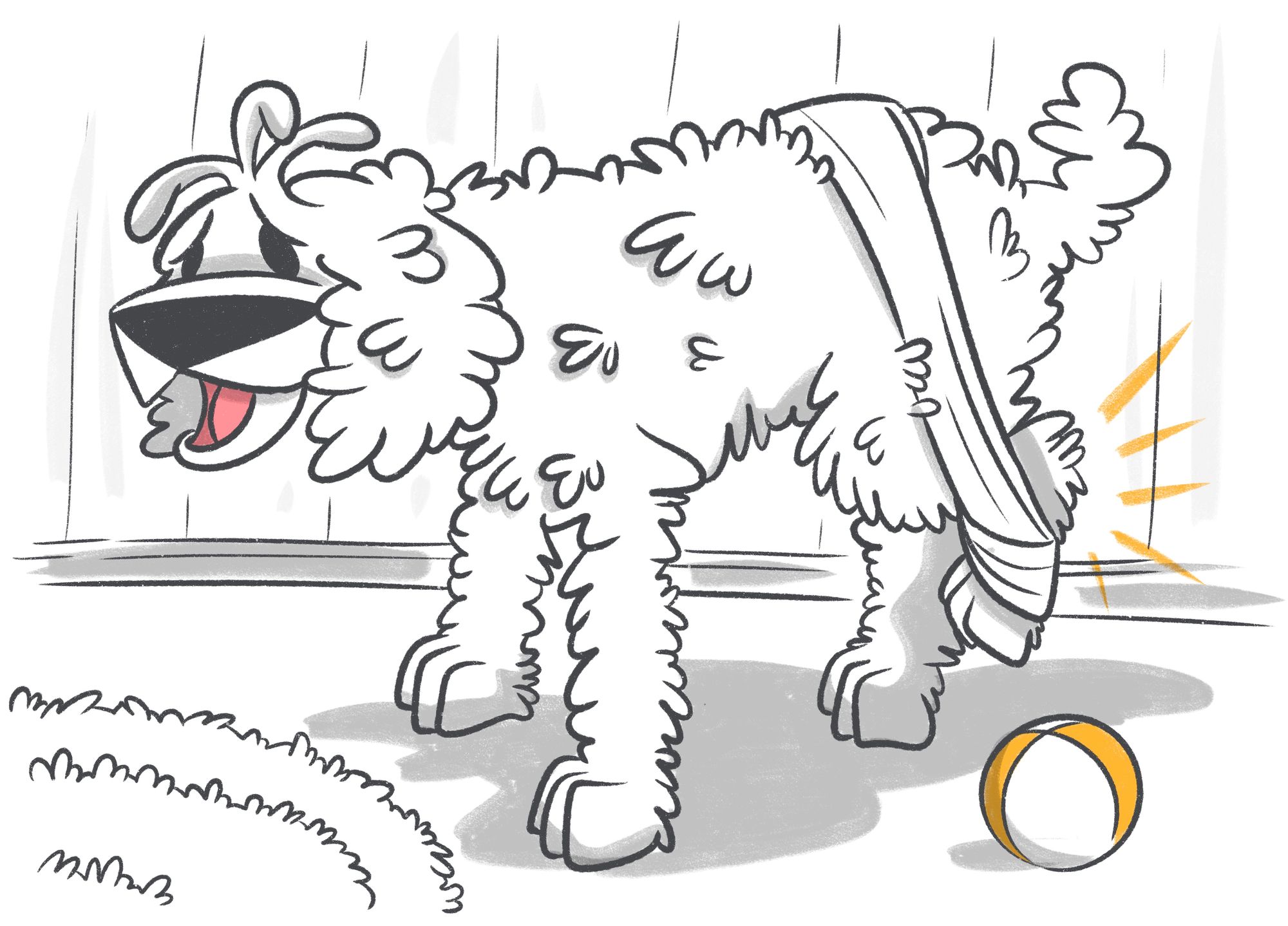Hip dislocation, medically known as coxofemoral luxation, is when the hip bone moves from where it’s supposed to be. The joint no longer sits in the joint, making mobility difficult, causing great pain, and causing secondary damage to bones, muscles, and ligaments.
For most dogs, hip dislocation is something that never happens, but for those with hip dysplasia, arthritis, or a serious case of clumsiness, it can be a real problem. Some experts argue that vehicle collisions are one of the major causes of hip dislocation in dogs without underlying conditions.
Content:
- Symptoms of a Dislocated Hip in Dogs
- Causes of a Dislocated Hip in Dogs
- Treatment for Dislocated Hips in Dogs
- How Can the Emergency Fund Help with Treatment
- FAQ
- Conclusion
Symptoms of a Dislocated Hip in Dogs
This is a very painful condition for dogs, just as it is for humans and other animals. Your dog will react unusually, snapping and biting when they otherwise wouldn’t, crying or whining in pain, and not letting you touch or get close to the painful area.
Stop Googling - Ask a Real Vet
Other symptoms of dog hip dislocation are:
- Not moving around;
- Limping;
- Leg constantly lifted;
- Dragging back leg(s);
- Affected legs appear shorter than non-affected legs.
- Licking or biting the affected area;
- Swelling around the hip;
- Hot-feeling skin around the hip;
- Food and/or drink avoidance;
- Not sleeping.
If you have a Petcube Camera in your home, watch the footage back to check for any doggy accidents or incidents that could indicate a cause.
Causes of a Dislocated Hip in Dogs
According to PetMD study, trauma, such as vehicle collisions, is one of the most common causes of dislocated hips in dogs. Dogs can dislocate their hips by falling down stairs, bumping into walls, crashing to the floor with their humans, during high-contact playtimes, and through other forms of physical trauma.
Certain underlying causes increase the risk of dog leg joints or hip joints being out of place, including osteoarthritis and arthritis, hip disease (such as hip dysplasia), and other degenerative diseases.
Malnutrition, dietary deficiencies, improper diet, genetics, obesity, and abuse can cause or add to the likelihood of dog hip dislocation.
Treatment for Dislocated Hips in Dogs
A dog or puppy with a dislocated hip needs urgent medical attention from a licensed and qualified vet. This is not something you can treat at home, and you should not attempt to pop the joint back in by yourself. This can do more damage, even causing permanent and long-term issues.
Without X-rays and other diagnostic tests, you can’t be sure that your pet doesn’t have other injuries along with a dislocated hip or leg, such as broken or fractured bones. Only medical professionals can perform a full check-up and give your pet a full bill of health, or not.
In simple cases, a vet can pop the hip joint back into its socket, but the dog will be placed under general anesthesia first. The procedure would be incredibly painful for the pet if they were not anesthetized.
More complex or repeated hip or leg dislocations in dogs may require surgery to pop the joint back, using implants and other items to keep everything in place during the healing process.
In serious cases, the thigh bone might need to be replaced with a false joint, known as a femoral head osteotomy (FHO). Alternatively, canines can undergo the same kind of hip replacement surgery that humans get — not performed by the same medical professionals.
How Can the Emergency Fund Help with Treatment

The very last thing you’re going to want to worry about when your dog has an urgent medical emergency is how you’re going to pay for treatment. In all honesty, you don’t have time to stall and flick through your bank accounts first. Pet health problems don’t wait for when the time is right and your bank account is full, right?
Petcube’s Emergency Fund has your back for urgent pet emergencies, offering up to $3,000 of pet care coverage per year for less than $1 per day. You’ll also have access to licensed, professional veterinarians 24 hours a day, 7 days a week, so you can ask those pressing pet health questions exactly when you think of them.
FAQ
Can you prevent hip injuries in dogs?
Hip dislocations and other dog injuries are not always preventable. Accidents happen, after all. You can pet-proof your home and garden to remove obstacles that could cause problems and keep up with regular vet checkups.
In doing so, any medical conditions that could make hip dislocation more likely will be diagnosed and treated in good time. To strengthen your dog's joints, you can use special nutritional supplements.
How to put a dog’s hip back in place at home?
You should not attempt to put a dog’s hip back in place after dislocation unless specifically directed by your vet, which is highly unlikely.
Relocating a dislocated hip without anesthesia is painful, and if you don’t know what you’re doing medically, you could be rolling the joint around with no idea of where to put it. Attempting to fix this problem at home would be similar to pet cruelty.
What’s the average cost of dog hip dislocation surgery?
A total hip replacement for a dog can cost upwards of $6,000, with some places suggesting up to $15,000 for more complex cases. The cost of treatment will depend on the severity of the case and the recommended treatment(s).
Conclusion
You could be the best pet parent in the world, and your precious furry family members will still come running to you with lumps, bumps, scrapes, and other injuries from time to time. You can’t prevent every accident, but you can prepare for the event of one.
If you spot any hip dislocation symptoms or any signs of pain and discomfort, seek pet care advice immediately.
Was this article helpful?
Help us make our articles even better









